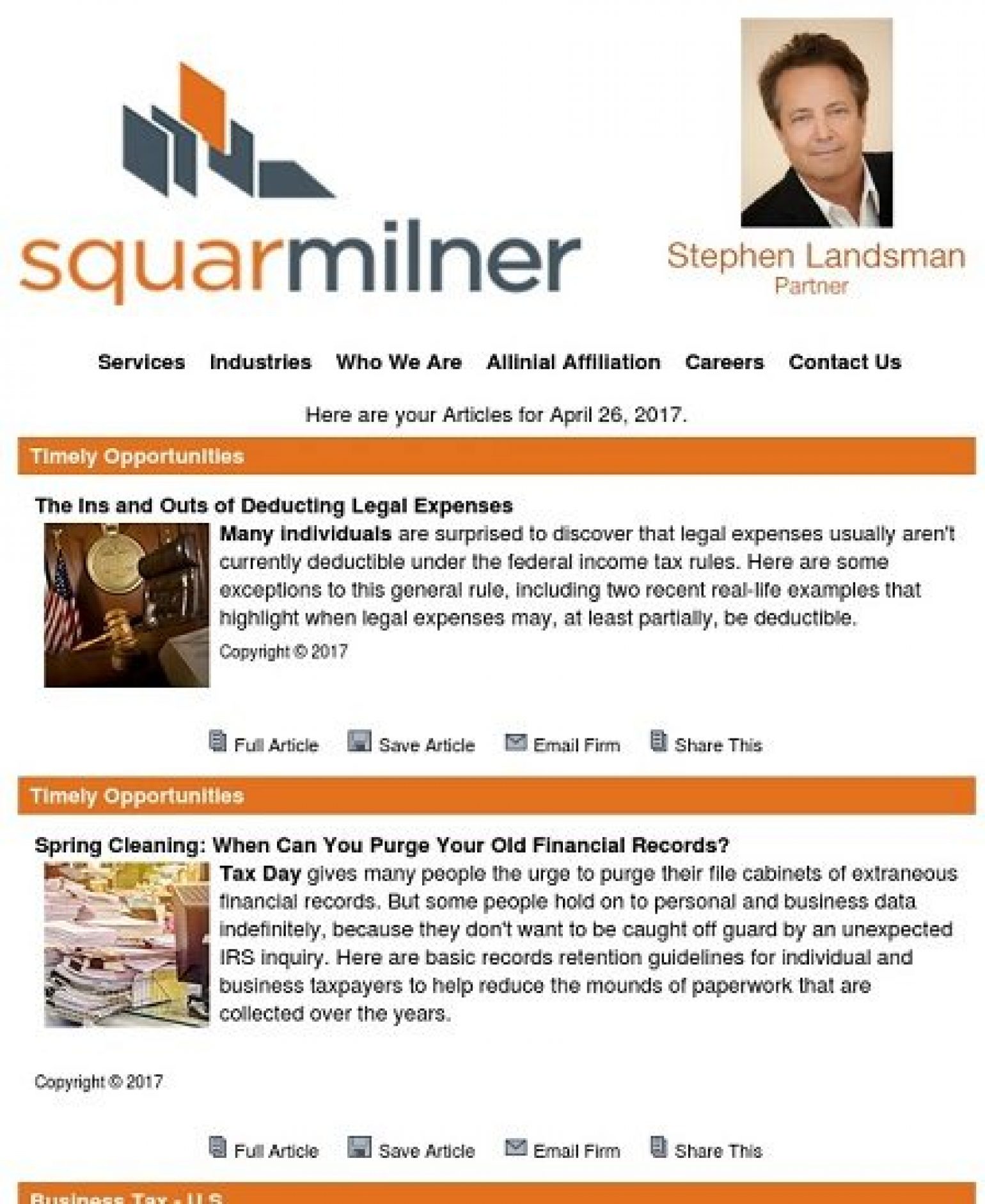Financial Advice from Stephen Landsman at SquarMilner
Our friend Stephen Landsman has written some interesting articles businesses and individuals alike can benefit from. From deducting legal expenses on your taxes, to purging your sensitive financial documents, find below some great financial advice from some of the best tax-professionals at SquarMilner.
Click titles to read the full articles or check out his full newsletter here.
1) The Ins and Outs of Deducting Legal Expenses On Your Taxes:
“Individuals will sometimes incur legal expenses that are legitimately business-related and, therefore, deductible. But, if you’re audited, the IRS will routinely disallow legal expense deductions unless you can adequately prove that the expenses are indeed business-related.”
In this article, business-owners will be informed of the hows-and-whys their business-related legal expenses could be tax deductible as well as when non-business legal expenses can be tax-deductions. In a recent Tax-Court decision and an IRS Private Letter Ruling, readers will be given two real-life exceptions to the general rules for legal-expense deductions.
2) Spring Cleaning: When Can You Purge Your Old Financial Records?
“In general, you must keep records that support items shown on your individual tax return until the statute of limitations runs out — generally, three years from the due date of the return or the date you filed.”
“Regardless of whether you’re tossing out personal or business financial documents, always shred them thoroughly first.”
An interesting look at when both businesses and individuals can dispose of older financial records and how to do it properly. Mr. Landsman covers completed tax returns, backup records, real estate records, securities, IRAs, employee records, employment tax records, travel and entertainment records, sales tax returns, and business property records. This is a great article for anyone wondering how and when to purge their sensitive records.
3) Protect Your Most Prized Possessions
“In some states, an employer may only have a limited license in an invention that an employee creates while on the employer’s time.”
“All U.S. states permit employers to require their employees to sign copyright, IP and invention assignment agreements that give all IP rights to the company.”
Does your business currently require employees to sign Intellectual Property Agreements? If not, your business may be at risk to lose some of its most valuable assets such as inventions and copyrights to employees or independent contractors! A must-read for employers & business-owners.
Stephen Landsman, CPA is an experienced financial-professional and tax-partner at SquarMilner. Our friends at the accounting firm SquarMilner are certified public accountants and financial advisers helping small businesses with effective financial consultation, audits, business management, and tax-preparation. Find out more by visiting their website: squarmilner.com/about/




